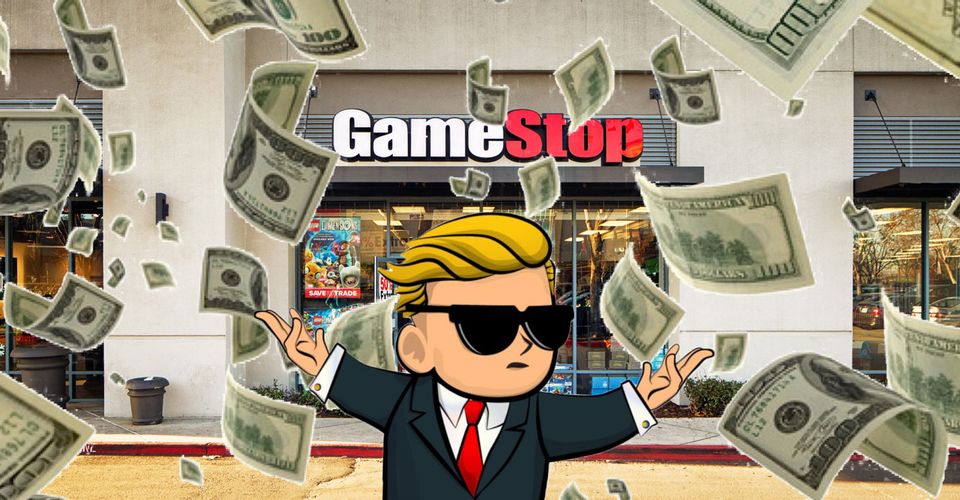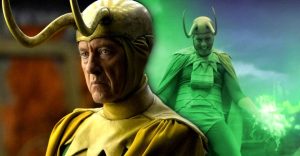GameStop Stock Price Explained: What Exactly Is Going On?

On January 12, GameStop‘s stock price began its meteoric rise to historic highs, blasting past its meager $15 share price in mid-December to a peak of $467 per share at the time of writing. This explosion in value has made traders a fortune, but it wasn’t the suits on Wall Street profiting off of what has been a more than 700% boost in share price in just one week; it has been amateur traders who have raked in millions. So what exactly happened to cause this unprecedented spike in GameStop’s valuation?
It’s a David-versus-Goliath story at its core, and it begins with GameStop’s suffering business. The video game retailer was once a staple of strip malls, but online game platforms like Steam and the ongoing coronavirus pandemic has battered the business. GameStop was projected to close 1,000 stores by the end of March 2021, which was a response to losses over the course of 2019 and 2020. The company even hired Nintendo of America president Reggie Fils-Aimé earlier in 2020 and struck a profit-sharing deal with Microsoft to mount a comeback. Still, the future looked bleak for the retailer, and hedge funds noticed the potential to make profits from its downfall.
Investment firms, like Melvin Capital, bet big on GameStop’s share price, banking on a trading strategy known as short selling. It’s a fairly simple maneuver that involves hedge funds borrowing GameStop shares from lenders at a $1 fee, for example, and promises to give them all back. The firm then sells the stocks at their current price, say $10, then waits for their price to sink to $5, so they can repurchase them for cheaper and earn a profit, which would be $4 in this case ($10 – $5 – $1).

Shorting stocks can offer huge profits if executed seamlessly, but it can be extremely risky if the shorted stock surges. In GameStop’s case, hedge funds were so confident that its stock would plunge that they compounded their shorts over months and made billions. This proved to be such a gold mine that big-time investors became overzealous and essentially borrowed more stocks than they could ever buy back. According to Business Insider, 72 million GameStop shares (140% of all available shares) were shorted as of January 22. More shares were being lent than actually existed, and that’s when an online community of amateur traders leaped on the hedge funds’ plan to make a killing.
GameStop Stock Price Explained: The Big Squeeze

The /r/WallStreetBets Reddit forum is currently 4.7 million members strong at the time of writing, up from 1.8 million on January 18, according to internet archive WayBackMachine. The community was once only known for its toxic jargon and its members bragging about tremendous gains or massive losses on risky trades; now, it’s become the community that has cost hedge funds billions, all because it caught wind of the astronomical amount of money being poured in to bury GameStop.
Short interest in specific companies is publicly available, and WallStreetBets users understood that hedge funds would be forced to buy back the stocks they borrowed and sold eventually, so they decided to buy as many shares as possible to boost the share price, which led to GameStop’s skyrocketing valuation. When the stock began its monumental climb, short-sellers were forced to buy the stock as well, to prevent even greater losses, which only caused the stock price to spike higher. That resulted in a market phenomenon known as a short squeeze. A similar situation happened to the German car company Volkswagen in 2008 and 2009, which briefly made it the most valuable company in the world.
To date, it has cost hedge funds like Melvin Capital billions. The firm received a $2.75 billion bailout on January 25 after losing more than $3 billion on its GameStop shorts, reported The Wall Street Journal. All the while, WallStreetBet users bragged about millions in gains, but the stock market fiasco was far from over. Short sellers doubled down on their bets, banking that the stock price would crash soon. They also appeared on financial news networks arguing that what had happened was “market manipulation,” but all of that attention backfired.
Gamestonk!! https://t.co/RZtkDzAewJ
— Elon Musk (@elonmusk) January 26, 2021
Wealthy, independent investors, nicknamed “whales,” heard this chatter and decided to jump in themselves, including tech mogul Elon Musk. He tweeted “Gamestonk!!” on the evening of January 26, which sent GameStop’s price up to $230 from $150, further deepening shorters’ wounds. GameStop’s share price peaked at $467 on January 28, an almost 1,000% increase from its share price a week ago, while only the night before one user showed WallStreetBets that he had amassed more than $33 million from his $755,000 initial investment.
GameStop Stock Price Explained: The Fallout
Gotta admit it’s really something to see Wall Streeters with a long history of treating our economy as a casino complain about a message board of posters also treating the market as a casino
— Alexandria Ocasio-Cortez (@AOC) January 27, 2021
Following this extraordinary moment for small-time traders, politicians – like New York congresswoman Alexandria Ocasio-Cortez – tweeted, “it’s really something to see Wall Streeters” being bested by “a message board.” Barstool Sports‘ David Portnoy egged traders on even more by tweeting he predicted trading would be “intergalactic.” But all of this excitement came screeching to a halt on January 28 when popular brokerages Robinhood and TD Ameritrade issued trade restrictions on GameStop.
Traders were no longer able to buy shares but only sell the ones they had, which caused GameStop stock to nosedive as low as $126 from $467. Robinhood cited “ongoing volatility” to justify its unprecedented restrictions; the stock price movement even prompted the Biden administration to state it was monitoring the situation. This move tied the hands of a majority of Robinhood traders. More than half of the app’s users owned at least one share of GameStop, according to Motherboard. This, once again, caught the attention of celebrities and politicians, who lambasted these brokerages for keeping smaller investors out, while hedge funds still had free rein of the stock.
BREAKING: Class action complaint against @RobinhoodApp filed in the southern district of NYhttps://t.co/DuGP3LIQDQ pic.twitter.com/mw82RRoA2L
— Lydia Moynihan (@LJMoynihan) January 28, 2021
AOC tweeted that Robinhood’s restrictions were “unacceptable” on January 28, which Texas Senator Ted Cruz said he “fully” agreed with. Portnoy went on a Twitter tirade claiming that the restrictions on trading GameStop and other surging stocks were criminal, an argument that investors are taking to court. Fox Business reporter Lydia Moynihan broke the news that a class action complaint was filed against Robinhood alleging that it had “deprived retailed investors of the ability to invest in the open-market and [manipulated] the open-market.“
As of January 28 at 1:45 pm EST, GameStop stock remains within the $200 and $250 range. For many small-time traders owning the stock is no longer about the money but about sending a message. WallStreeBets members and many others who jumped on board did it to be a part of one of the most stunning democratizations of the U.S. stock market in history. Some traders have expressed their interest to “never sell” their positions to keep them as a memento of the time when amateur traders squeeze hedge funds out of billions.
















